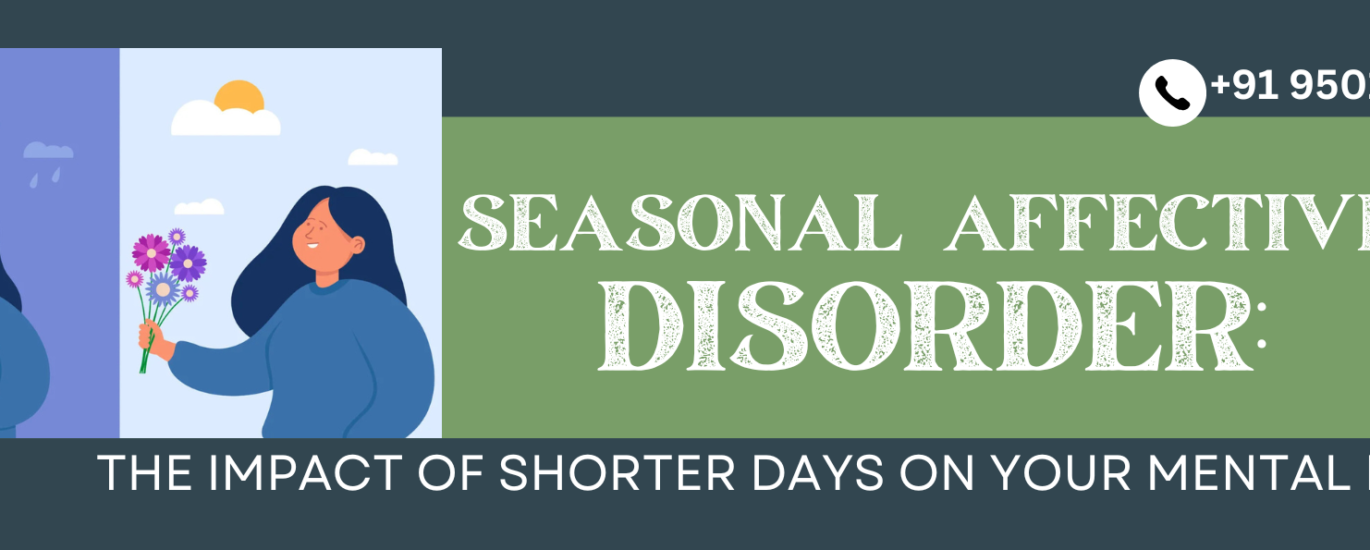As the seasons change, many people find themselves struggling with their mental health during the shorter, darker days of fall and winter. This is especially true for individuals who experience Seasonal Affective Disorder (SAD), a form of depression that occurs at specific times of the year, often coinciding with the reduction in daylight. For those who are affected, these changes in the environment can have a profound impact on both emotional and physical well-being.
What is Seasonal Affective Disorder?
Seasonal Affective Disorder is a type of depression that typically occurs during the fall and winter months when daylight hours are shorter. It is believed that the lack of sunlight can disrupt the body’s internal clock, known as the circadian rhythm, affecting sleep patterns, mood regulation, and energy levels. This disruption can lead to sadness, fatigue, irritability, difficulty concentrating, and even physical symptoms such as weight gain or changes in appetite.
While everyone may feel slightly “down” during the colder months, SAD goes beyond typical winter blues. It can seriously impact daily functioning, relationships, and overall quality of life. Common symptoms include:
- Low energy levels or fatigue
- Trouble sleeping or oversleeping
- Irritability or anxiety
- Difficulty concentrating
- Changes in appetite (cravings for carbohydrates, overeating)
- Feelings of hopelessness or despair
SAD can also lead to social withdrawal, as people may feel less motivated to engage in social activities or leave the house, further exacerbating feelings of loneliness and isolation.
How Shorter Days Affect Mental Health
The primary culprit behind Seasonal Affective Disorder is the lack of sunlight during the fall and winter months. Sunlight plays a crucial role in regulating the production of serotonin, a neurotransmitter that helps regulate mood, appetite, and sleep. With reduced sunlight exposure, serotonin levels may drop, leading to symptoms of depression. Additionally, shorter days and longer nights can disrupt the production of melatonin, a hormone that controls sleep patterns, further affecting emotional and physical health.
If you’re experiencing the symptoms of Seasonal Affective Disorder or struggling with depression during the winter months, it’s important to seek professional help. Dr. Priyanka, an experienced counsellor for depression in Ludhiana, specializes in providing compassionate care for individuals affected by depression, including SAD. She offers depression counseling services in Ludhiana tailored to each individual’s unique needs.
Dr. Priyanka’s approach to treatment includes a combination of therapeutic techniques designed to address the underlying causes of your depression and equip you with the tools to cope with the challenges of the changing seasons. Whether through cognitive behavioral therapy (CBT), talk therapy, or other methods, Dr. Priyanka works with her clients to develop strategies for managing their symptoms and improving their overall mental health.
Why Seek Help?
It’s essential to recognize that if you’re struggling with SAD, you are not alone, and there is no need to suffer in silence. Seeking help from a counsellor for depression can be a crucial first step toward improving your mental health and restoring balance during challenging seasons. Whether you’re experiencing mild symptoms of SAD or more severe depression, therapy can provide significant relief.
Dr. Priyanka’s depression counseling services in Ludhiana are designed to empower individuals to regain control over their emotional health and thrive, even during the colder months. Don’t let the shorter days dictate your mood or mental well-being—take charge of your health today and reach out for professional support.

